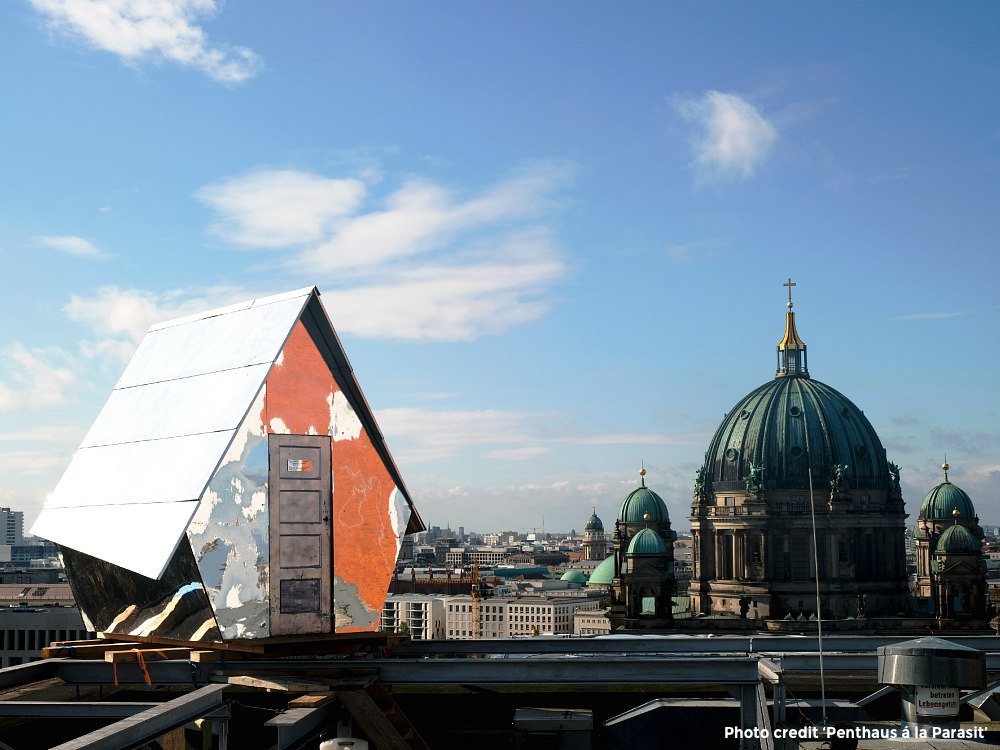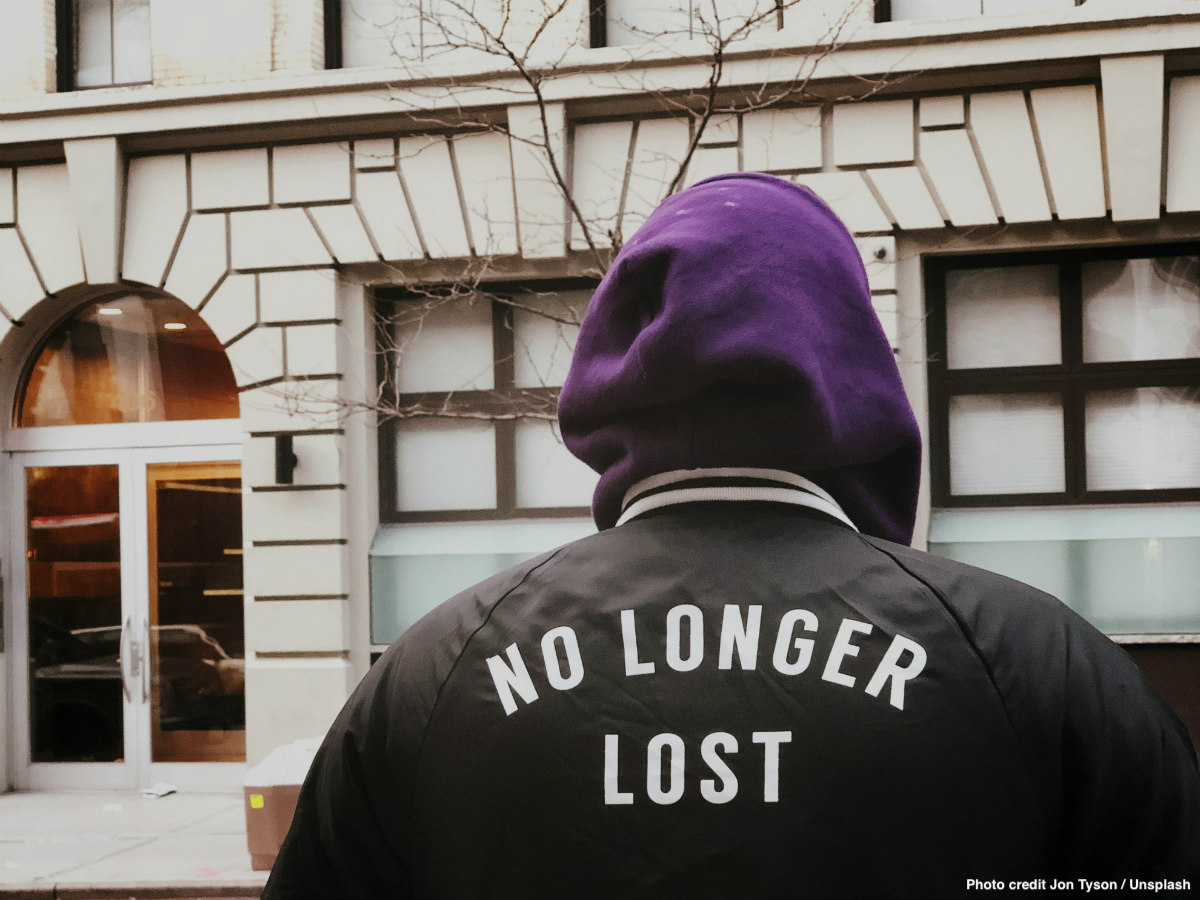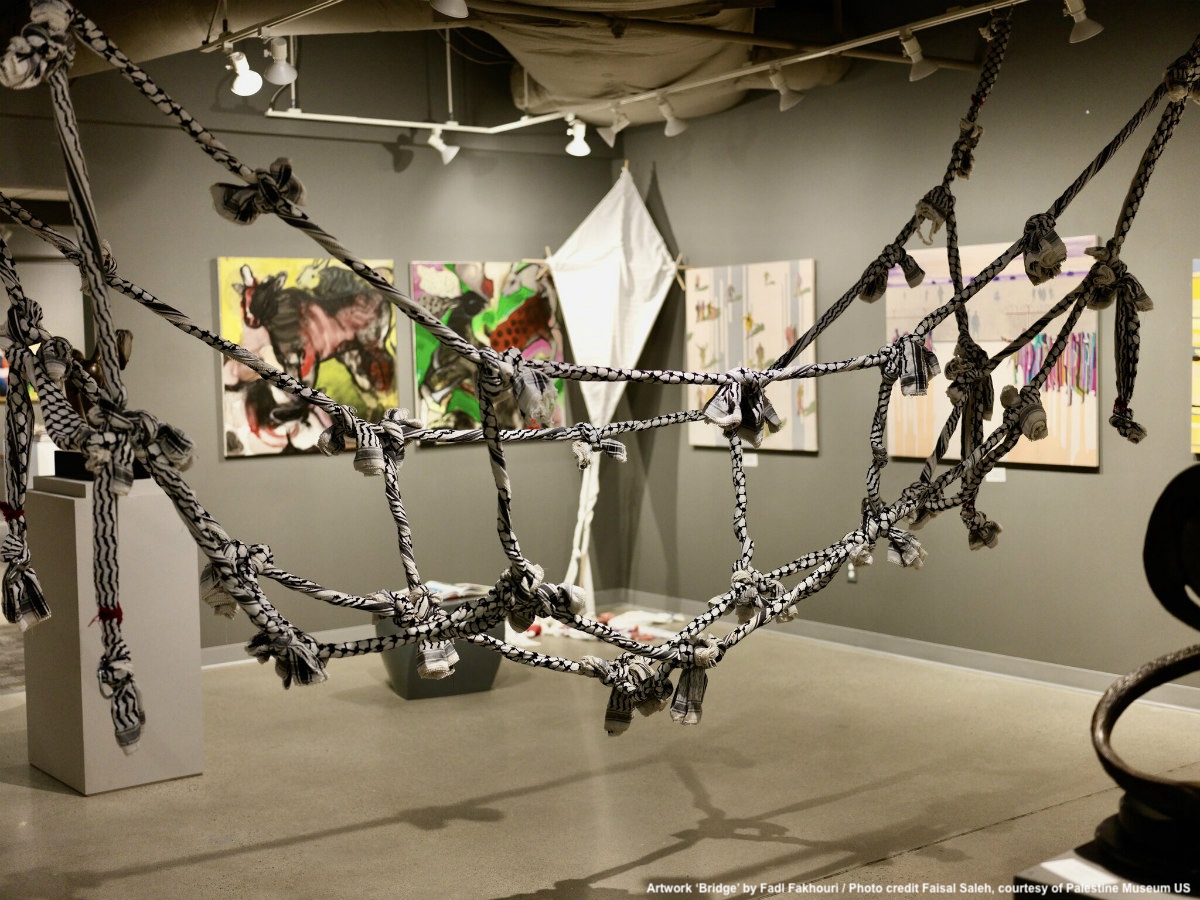In the trendy district of Berlin Neukölln a little house sits on the rooftop of a private building. Two art activists have built a ‘penthouse’ with mirror walls without the permission of the building’s owner, but with a mailbox – also for any eviction letters. Volunteers can sleep, cook and work in 3 square meters – until the police clears it out. Some weeks later the house sits on the rooftop of a parking lot in Munich, the views are breathtaking. ‘Penthaus à la Parasit’ is an art action to shift the narrative about affordable housing in cities to what actually parasite characters would do in case of rent hikes and unwarranted evictions so that they can stay in their homes.
In Berlin increasing rental prices and gentrification has been long under way mainly due to newcomers of a booming startup industry and the attractiveness of this ‘poor but sexy’ city. In Munich historical low rental prices, despite a steady strong economy, have skyrocketed in the last years. The city is running out of easily developable space within its city boundaries while facing substantial population growth. Developable land scarcity has led to high property prices which makes the city a target for attractive investment by real estate investors, putting increased pressure on rents paid by long-term tenants.
More than half of Germans are tenants
There is hardly a country in Europe where so many people live in rented properties as in Germany. It has historical reasons. After the Second World War, many German cities were destroyed – and thus a lot of property wealth. New living space had to be created for people. So the state built very quickly to easily rent apartments to slowly withdraw later.
Because of the low rental costs, people would have liked to stay longer in the rental apartments. Plus, German banks require a significant downpayment to apply for a mortgage as compared to other European countries. Tax-benefits are granted if the owner rents out the apartment.
The fall of the Berlin Wall supplied the city with huge vacant space to build. But in Munich space is rather scarce. In the last years the city government has been freeing up idle developable land, such as former military areas, and grant permissions for construction.
A neighbourhood in the north of Munich used to be a military area (which explains the numerous warlike street names nearby this area), later on occupied by American troops after the Second World War. ‘We used to play here as kids looking for cartridges and sell them’, says one local and resident of house ‘wagnis4’.
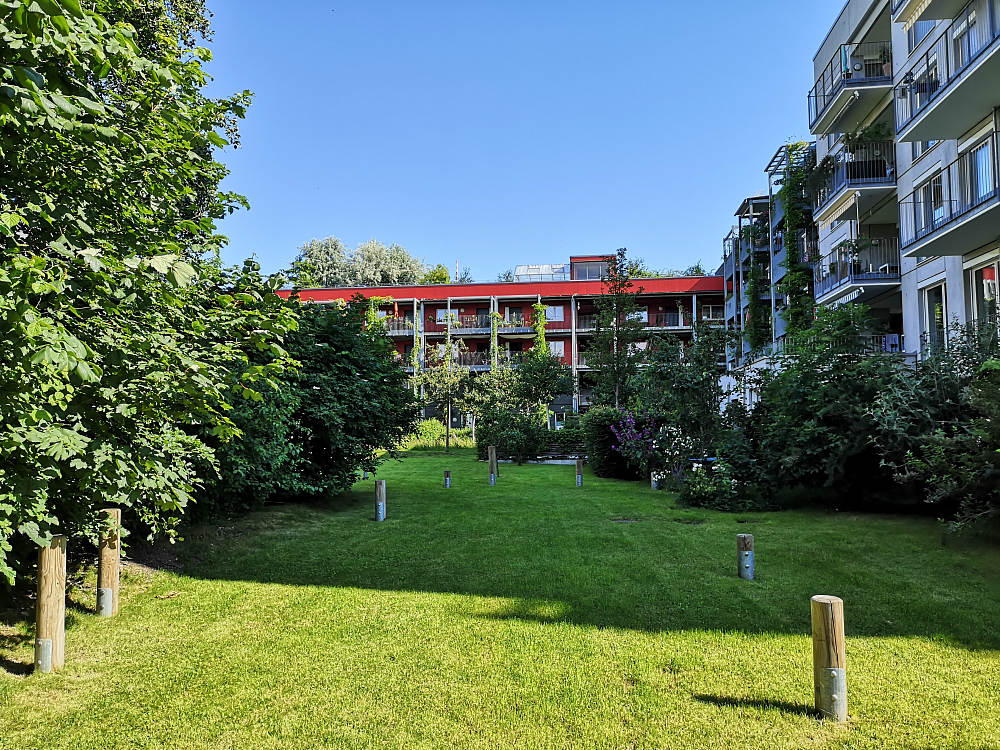
‘wagnis4’ is part of an emblematic cooperative housing development that now boasts six projects with more than 400 affordable housing units around Munich. The person behind this endeavour is Elisabeth Hollerbach. At the age of 50, this urban activist, with similar like-minded people, founded the non-profit housing cooperative ‘wagnis eG’. She was committed to push for a housing development with an independent non-profit model that rejects speculation in favour of sustainability and social cohesion.
Elisabeth Hollerbach always wanted to take matters into her own hands and change them. She is the daughter of refugees, who fled during the Second World War from the regions in the territorial boundaries with Poland. She came to Munich later as a young student and was influenced by the youthful spirit of idealism of the great 70s in Munich.
The other affordable housing which every city will love to have
Hollerbach built the first housing project in 2005. It was a success story, the resulting apartments gave the residents a special home. And something revealing happened. Many voluntary community activities and social services grew around this development capitalizing on the spirit of self-administration, and with no cost for the city.
A project like this allows the ability of ethnically diverse citizens, people of different personalities, with different cultures, age, bank accounts or religions to voluntarily build a thriving community that aligns with their values. In the house some of the apartments are partly subsidized by the city to help – specially low earners – who can no longer afford to pay rents in Munich. The other same apartments are subscribed by citizens who purposely choose an alternative model of communal and responsible living.
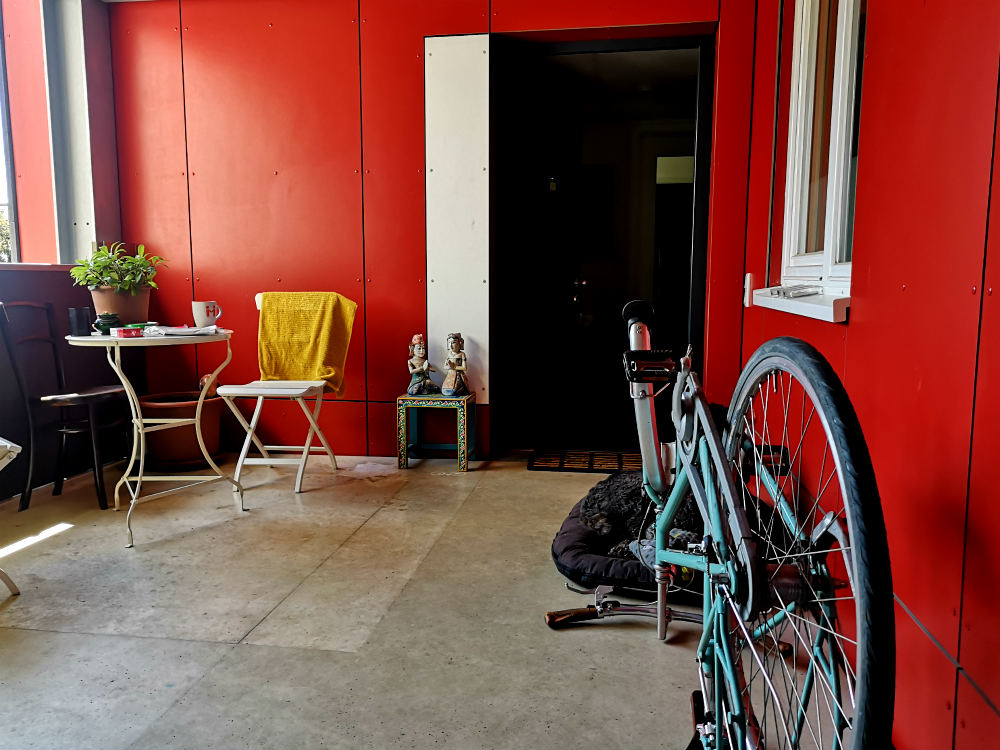
Contrary to social housing, this kind of non-profit cooperative embodies a common voice of its members to shape places where all families can access affordable housing in cities and will thrive outside ghettos. Moreover, this healthy mix of residents play an essential role in the participative process for the concept and design of the house. The apartments all have the same furnishing and finishing inside, no distinctions are made.
In addition, our housing developments value more than ever innovative architecture which blur the boundaries between people, living space and urban space, explains Hollerbach.
‘In that sense the project ‘wagnisArt’, awarded many times for its architecture, has contributed to slightly change the housing policy in the city’.
At ‘wagnis4’ there is an open corridor in the facade to enter the apartments, a publicly accessible courtyard with common play areas, as well as a wide and breathtaking rooftop garden.
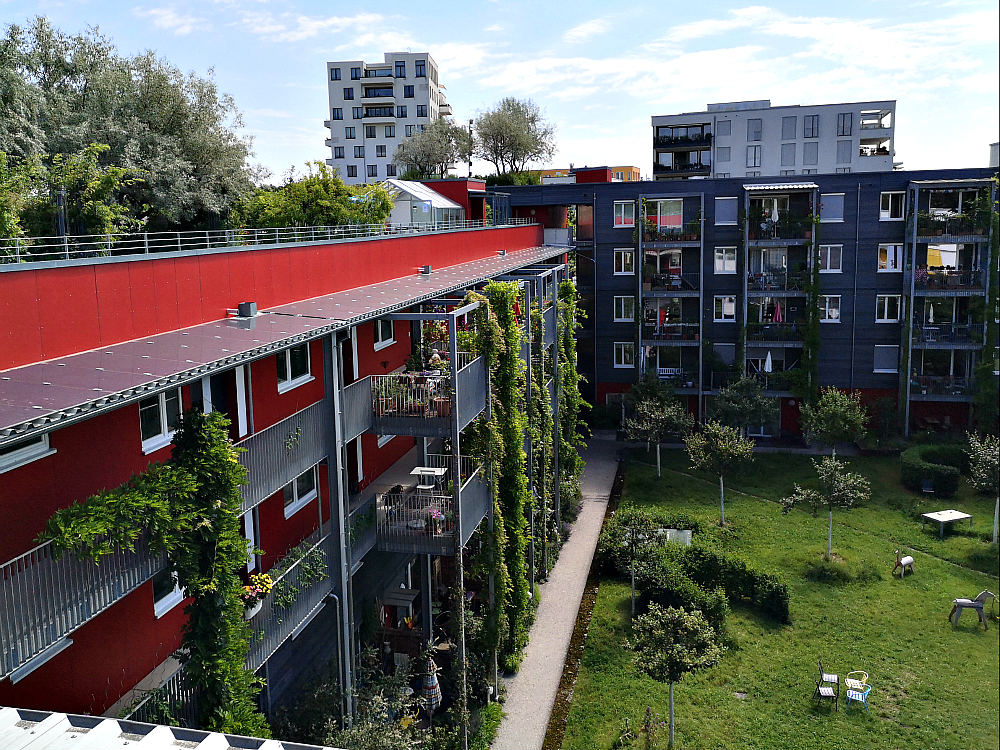
In the participative process, architects collect all the ideas and address them in favour of a compromise solution based on the pillars of self-administration, communal living and sustainability, which all future neighbours advocate. The psychology behind the development of ‘Wagnis 4’ has been greatly captured in the documentary ‘wer wagt beginnt’ (translated in English ‘who dares begins’) by German film director Uli Bez, a resident of the house herself.
The invisible value creation by conscious citizens for affordable housing in cities
But more than a compromise architecture, though, residents compromise on economics.
Once a future resident agrees to join the housing cooperative, she or he is giving up on a future profit due to the increase in the value of the house. After all, the essential idea of a housing cooperative is to preserve long-term affordability.
Members of the housing cooperative subscribe to a membership with a one-time payment per square meter of the chosen apartment. Once they move in, they pay a monthly rent slightly below the market price. There are no strings attached. If one resident decides to leave the housing cooperative, she or he will get the down payment for the subscription back.
German speaking countries have a long history of cooperatives. In Munich as well as in Zürich and Vienna, recent housing co-operative projects have energized this old concept.
After Elisabeth Hollerbach kept knocking on the door of the city administration for years, her grassroots collective succeeded in getting city officials on board to grant the permissions to build these impressive housing projects in Munich. The beautiful developments have attracted other for-profit housing projects, all of them intertwined with one another.
‘The purpose is that one shouldn’t differentiate by the aesthetic of the architecture which type of housing each project is. Because it shouldn’t be that way in the first place’, so Hollerbach.
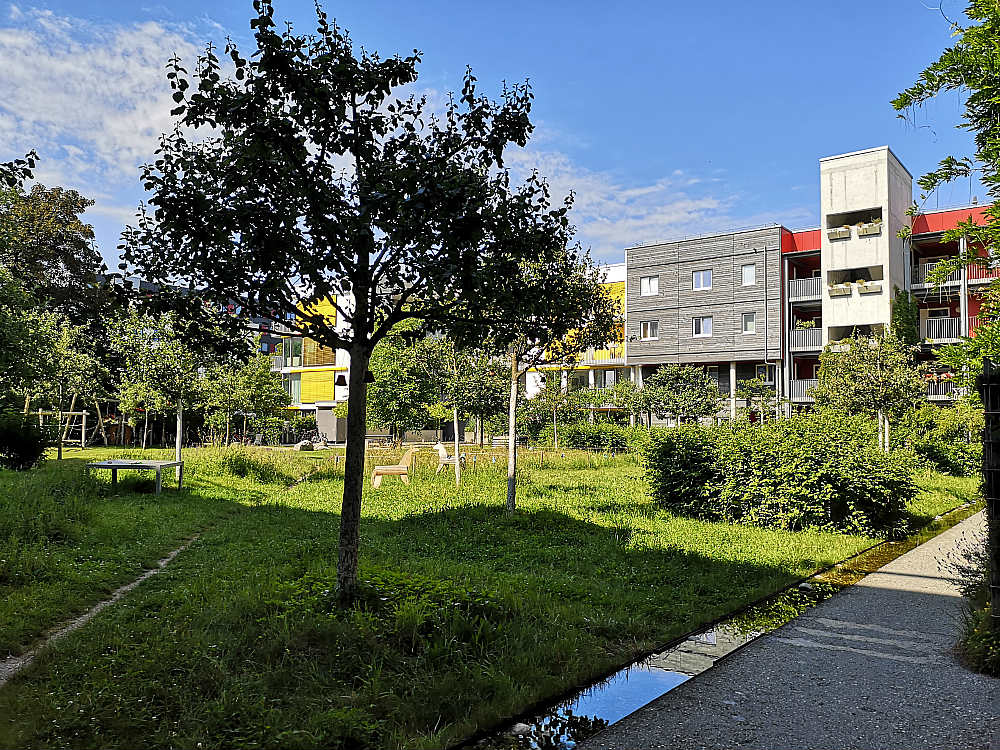
Even if ‘wagnis4’ ecological lawn looks wild compared to their neighbours’, there are no fences between them. One house project smoothly flows into the next one.
Our genuine inclusive projects facilitate peaceful streets and contribute to a vibrant neighbourhood, less rampage, where neighbours care for each other. In fact, the city saves money through these neighbourhoods because our non-profit cooperatives implicitly invest in communities with no additional cost for the city, explains Hollerbach.
And foremost, members of a housing cooperative ensure affordable housing in cities, out of the speculative market, for future citizens.
In Munich citizens feel ‘ausspekuliert’
In 2018 over 10,000 people took to the streets to demonstrate under the motto #ausspekuliert – stop speculation now. This movement shows the citizen’s frustration with new developments in the city, which usually enriches a small handful of citizens and investors, and too rarely provides affordable housing in cities and meets community needs.
Tilman Schaich, one of its organisers, has heard numerous stories of tenants being kicked out of their apartments: owners’ excuses of personal use, astronomical rent increases due to maintenance and ‘mandatory’ modernization of the building, ‘justified eviction’ due to a delayed in rent payment when tenants for strange reasons don’t get the invoice on time or buildings’ owners turning off water or heating supplies to get rid of remaining tenants.

The topic of affordable housing dominates discussions in Munich like little else. If people see a construction site for luxury properties on their street, they get a grumble in their stomachs by the possibility of a possible rent increase or a termination.
In Berlin rent increases have been recently regulated putting a ceiling in future rental agreements. But the challenge of affordability requires not just short-term fixes, also long-term strategies like expanding alternative models for housing ownership.
City governments have a key role to play. They can work with banks on options for funding, to bridge the gap between the private sector and alternative ownership housing projects to improve the housing situation in the city.
Non-profit housing is not about charity. Members of the cooperative pay their fair share. It is about supporting the culture of living closer together and ensuring a genuinely mix of people in communities that keep our cities healthy.
